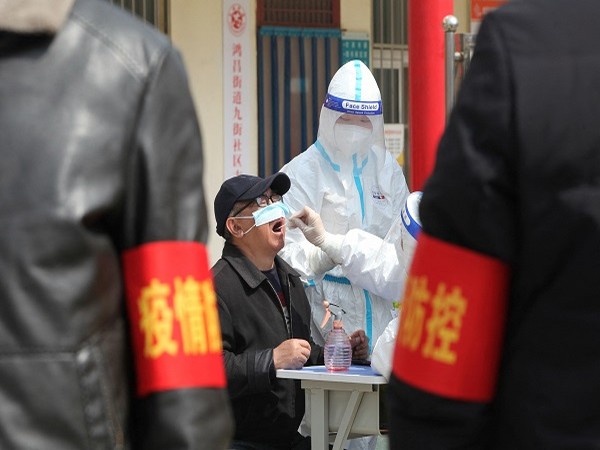WRAPUP 2-In COVID-hit Beijing, funeral homes with sick workers struggle to keep up
China has told its population of 1.4 billion to nurse their mild symptoms at home unless symptoms become severe, as cities across China brace for their first waves of infections. In Beijing, which has yet to report any COVID deaths since the policies changed on Dec. 7, sick workers have hit the staffing of services from restaurants and courier firms to its roughly one dozen funeral parlours.

- Country:
- China
Funeral homes across China's COVID-hit capital Beijing, a city of 22 million, scrambled on Saturday to keep up with calls for funeral and cremation services as workers and drivers testing positive for the novel coronavirus called in sick. After declaring that the Omicron strain has weakened, and unprecedented public protests against a zero-COVID policy championed by President Xi Jinping, China abruptly shifted its COVID management protocols more than a week ago.
Moving away from endless testing, lockdowns and heavy travel restrictions, China is realigning with a world that has largely reopened to live with COVID. China has told its population of 1.4 billion to nurse their mild symptoms at home unless symptoms become severe, as cities across China brace for their first waves of infections.
In Beijing, which has yet to report any COVID deaths since the policies changed on Dec. 7, sick workers have hit the staffing of services from restaurants and courier firms to its roughly one dozen funeral parlours. "We've fewer cars and workers now," a staffer at Miyun Funeral Home told Reuters, adding that there was a mounting backlog of demand for cremation services.
"We've many workers who tested positive." It was not immediately clear if the struggle to meet the increased demand for cremation was due to a rise in COVID-related deaths.
At Huairou Funeral Home, a body had to wait for three days before it could be cremated, a staffer said. "You can transport the body here yourself, it's been busy recently," the staffer said.
China's health authority last reported COVID deaths on Dec. 3. The Chinese capital last reported a fatality on Nov. 23. Yet respected Chinese news outlet Caixin reported on Friday that two veteran state media journalists had died after contracting COVID-19 in Beijing, among the first known deaths since China dismantled most of its zero-COVID policies. And on Saturday, Caixin reported a 23-year-old medical student in Sichuan died of COVID on Dec. 14.
Still, the National Health Commission on Saturday reported no change to its official COVID death tally of 5,235. China's abrupt lifting of its ultra-strict policies could cause over a million deaths through 2023, according to the U.S.-based Institute of Health Metrics and Evaluation (IHME).
Had those policies been lifted earlier, say on Jan. 3 this year, 250,000 people in China would have died, prominent Chinese epidemiologist Wu Zunyou said on Saturday. As of Dec. 5, the proportion of seriously or critically ill COVID patients had dropped to 0.18% of reported cases, Wu said, from 3.32% last year and 16.47% in 2020.
This shows China's fatality rate is gradually falling, he said, without elaborating. It was unclear if the proportion of severely ill has changed since Dec. 5. Regular PCR testing and mandatory reporting of cases was scrapped on Dec. 7.
'NORMAL DEATHS' "There're long queues of hearses here, and it's hard to say when there'll be available slots," said a staffer at Dongjiao Funeral Home.
"Normal deaths," the staffer said, when asked if the deaths were COVID-related. The lack of reported COVID deaths for the past 10 days has stirred debate on social media over data disclosure, fuelled also by a dearth of statistics on hospitalizations and the number of seriously ill.
"Why can't these statistics be found? What's going on? Did they not tally them or they just aren't announcing them?" one netizen on Chinese social media asked. China stopped publishing asymptomatic cases from Wednesday, citing a lack of PCR testing among people with no symptoms that was making it difficult to accurately tally the total count.
Official figures have become an unreliable guide as less testing is being done across the country following the easing of zero-COVID policies. In Shanghai, more than 1,000 km (620 miles) south of Beijing, local education authorities on Saturday told most schools to hold classes online starting on Monday, to cope with worsening COVID infections across China.
In a sign of staffing crunches to come, Shanghai Disney Resort said on Saturday that entertainment offerings may reduce to a smaller workforce, although the theme park was still operating normally.
(This story has not been edited by Devdiscourse staff and is auto-generated from a syndicated feed.)
ALSO READ
China Leads Global Surge in Energy Storage Market
China's Rare-Earth Magnet Surge: A Post-Agreement Export Boom
Nexperia China Secures Wafer Supplies Amid Corporate Dispute
Trading Suspension Shakes China Evergrande New Energy Vehicle Group
Tech Surges as Nike Stumbles on China Sales; Futures Indicate Mixed Open










